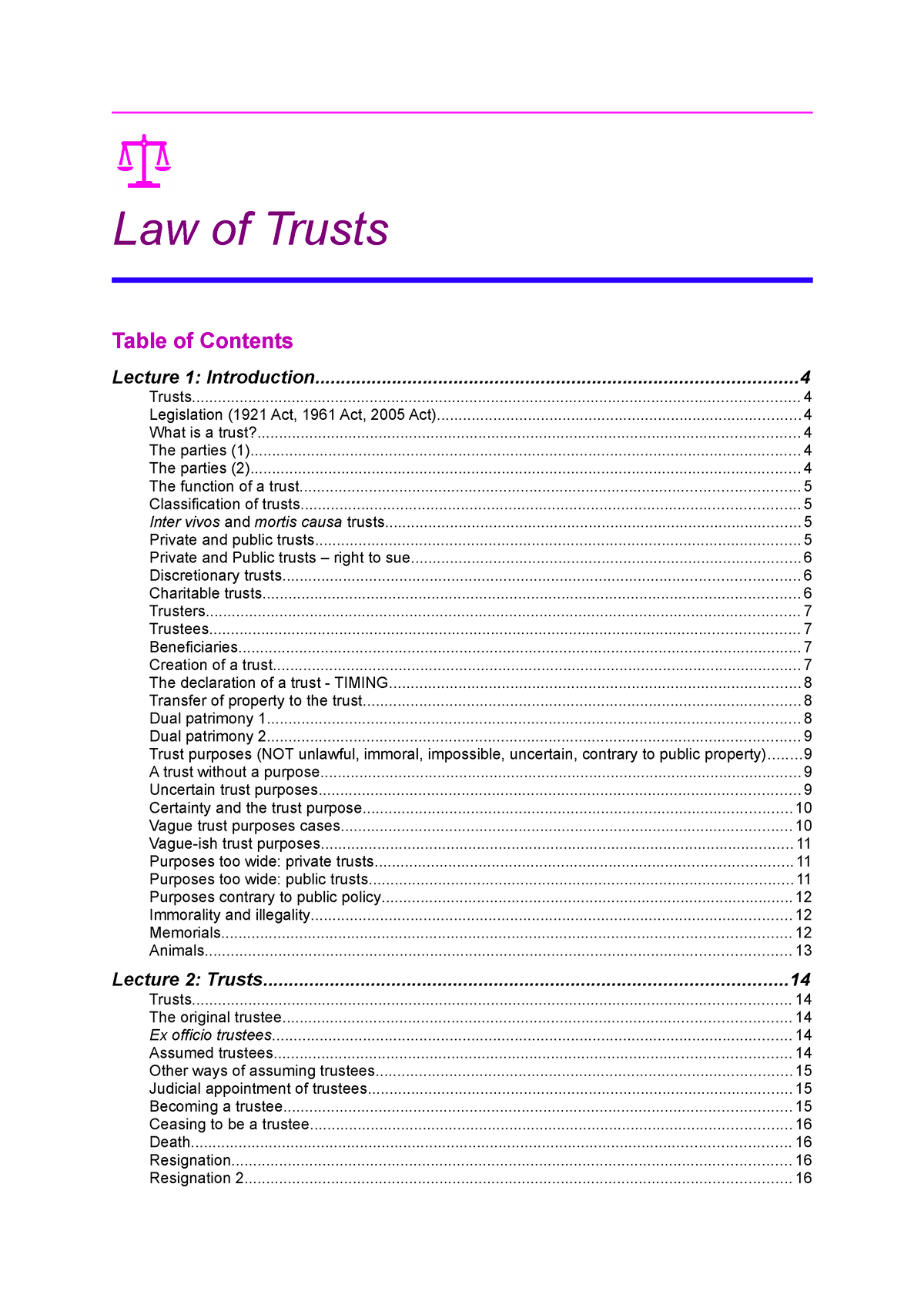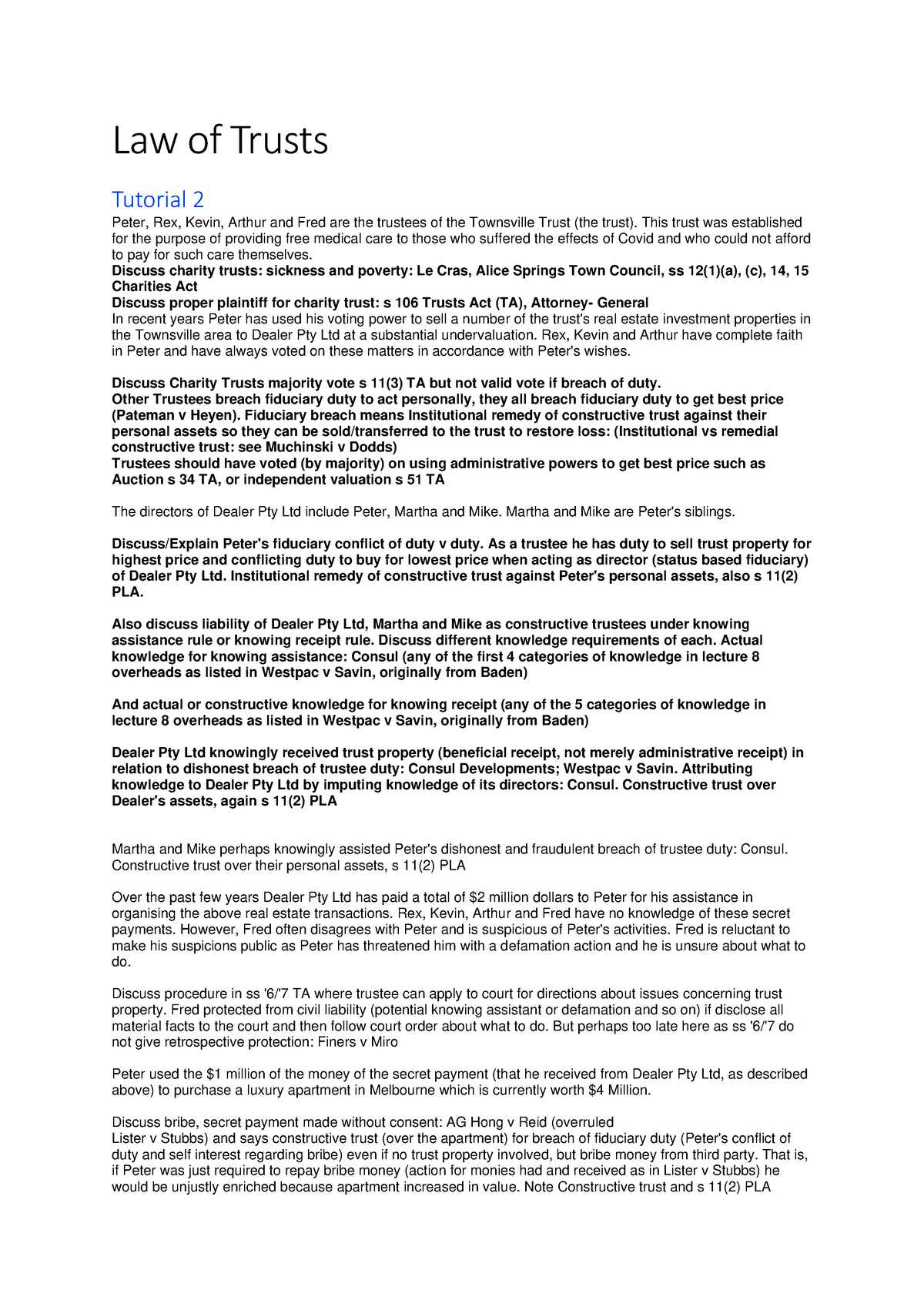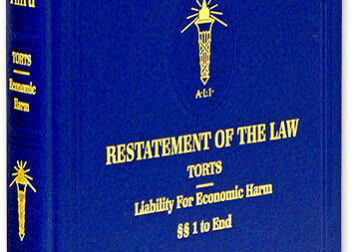Key Aspects of Tennessee Trust Law You Should Be Aware Of
Tennessee trust law provides a framework for managing and distributing assets according to a person’s wishes. A trust is a legal arrangement where one party holds property for the benefit of another. This law ensures that trusts are created, managed, and terminated following state regulations. Understanding these laws is essential for anyone considering setting up a trust to protect their assets and provide for their loved ones.
Types of Trusts in Tennessee

In Tennessee, various types of trusts cater to different needs and goals. Here are some common types:
- Revocable Trusts: These trusts can be altered or revoked by the trustor during their lifetime, offering flexibility.
- Irrevocable Trusts: Once established, these trusts cannot be changed without the beneficiaries’ consent. They provide asset protection and potential tax benefits.
- Testamentary Trusts: Created through a will, these trusts come into effect after the trustor’s death, managing assets for beneficiaries.
- Living Trusts: Established during the trustor’s lifetime, these trusts allow for asset management while the trustor is still alive.
- Special Needs Trusts: Designed to support individuals with disabilities without jeopardizing their eligibility for government benefits.
Creating a Trust in Tennessee

Creating a trust in Tennessee involves several important steps. Here’s a simple guide to help you understand the process:
- Define Your Purpose: Determine why you want to create a trust. This could be for estate planning, protecting assets, or providing for beneficiaries.
- Choose the Right Type of Trust: Based on your needs, select the type of trust that best suits your situation.
- Select a Trustee: Appoint someone responsible to manage the trust. This could be a family member, friend, or a professional trustee.
- Draft the Trust Document: Work with an attorney to create a legally binding document that outlines the terms of the trust, including the trustee’s powers and the beneficiaries’ rights.
- Fund the Trust: Transfer assets into the trust. This can include money, property, or other valuables.
- Review and Update Regularly: Periodically revisit your trust to ensure it still meets your needs and reflects any changes in your life.
Creating a trust can be a straightforward process if you take it step by step and seek professional guidance when needed.
Trustee Responsibilities and Powers
Being a trustee is a significant responsibility. In Tennessee, a trustee is the person or entity entrusted with managing a trust’s assets according to the trust document and state laws. This role requires a good understanding of both legal and financial matters. The trustee’s primary duty is to act in the best interest of the beneficiaries.
Here are some key responsibilities and powers of a trustee:
- Manage Trust Assets: The trustee is responsible for investing and managing the trust’s assets prudently. This includes making decisions that can grow the trust’s value.
- Distribute Assets: The trustee must distribute assets to beneficiaries according to the terms outlined in the trust document. This requires clear communication and adherence to the trust’s guidelines.
- Keep Records: Accurate record-keeping is vital. Trustees must document all transactions and maintain transparency with beneficiaries.
- File Taxes: The trustee is responsible for filing any necessary tax returns for the trust and ensuring that taxes are paid on time.
- Communicate with Beneficiaries: Keeping beneficiaries informed about the trust’s status and any changes is essential. Good communication helps build trust and prevents misunderstandings.
Trustees should seek legal advice when needed to fulfill their responsibilities effectively and ensure compliance with Tennessee trust laws.
Beneficiary Rights under Tennessee Trust Law
Beneficiaries of a trust have specific rights under Tennessee trust law, designed to protect their interests. Understanding these rights can help beneficiaries navigate their relationship with the trustee and ensure they receive what they are entitled to.
Here are some key rights of beneficiaries:
- Right to Information: Beneficiaries have the right to receive relevant information about the trust, including its terms, assets, and financial statements.
- Right to Accountings: Beneficiaries can request periodic accountings of the trust’s financial activities, ensuring transparency in how assets are managed.
- Right to Distributions: Beneficiaries are entitled to receive distributions according to the terms set forth in the trust document.
- Right to Enforce Trust Terms: If beneficiaries feel their rights are being violated, they have the right to take legal action to enforce the terms of the trust.
- Right to Contest the Trust: If a beneficiary believes the trust was created or modified under duress or fraud, they can challenge its validity in court.
These rights help ensure that beneficiaries are treated fairly and receive the benefits they deserve from the trust.
Modifying and Terminating Trusts
Trusts in Tennessee can be modified or terminated under certain conditions. Understanding the processes involved is crucial for both trustees and beneficiaries. Life changes, such as marriage, divorce, or the birth of a child, may necessitate adjustments to the trust.
Here’s how modifying or terminating a trust generally works:
Modifying a Trust
To modify a trust, follow these steps:
- Identify the Need for Modification: Changes in circumstances may warrant a trust modification.
- Consult with Beneficiaries: It’s often best to discuss potential changes with beneficiaries to gain their input and consent.
- Draft an Amendment: Work with an attorney to create a legal amendment to the trust document, outlining the specific changes.
- Sign and Notarize: Ensure the amendment is properly signed and notarized to make it legally binding.
Terminating a Trust
Terminating a trust can happen for several reasons, including:
- Fulfillment of Purpose: If the trust has served its intended purpose, it may be terminated.
- Consent of Beneficiaries: All beneficiaries can agree to terminate the trust if they believe it is in their best interest.
- By Court Order: In some cases, a court may order the termination of a trust, especially if it is no longer viable or necessary.
To terminate a trust, follow similar steps as modifying it, ensuring that all actions comply with Tennessee laws.
Tax Implications of Trusts in Tennessee
Understanding the tax implications of trusts in Tennessee is crucial for both trustees and beneficiaries. Trusts can impact how assets are taxed and can affect the overall financial strategy of individuals involved. Different types of trusts have varying tax responsibilities, so it’s important to know what to expect.
Here are the main tax considerations for trusts in Tennessee:
- Income Tax: Trusts are typically subject to federal income tax. The trust itself may pay taxes on any income generated, or the income may be passed through to the beneficiaries, who then report it on their tax returns.
- Tax Identification Number: Most trusts require a separate tax identification number (TIN) for tax purposes. This number is essential for filing tax returns.
- Estate Tax: While Tennessee does not currently impose a state estate tax, trusts can still be part of the federal estate tax calculation. This means that the value of trust assets may affect the estate tax liability.
- Gift Tax: Transferring assets into an irrevocable trust may trigger gift tax implications, as it can be considered a gift to the beneficiaries.
- Tax Deductions: Certain expenses related to the management of the trust may be deductible, such as trustee fees, legal fees, and accounting expenses.
Consulting with a tax professional or attorney can help clarify the specific tax implications of your trust, ensuring compliance and strategic planning.
Common Trust Disputes and Resolutions
Trust disputes can arise for various reasons, often leading to conflicts among beneficiaries, trustees, and other parties involved. Understanding common disputes and how they can be resolved is essential for maintaining harmony and protecting the interests of all involved.
Here are some frequent types of trust disputes:
- Disputes Over Trust Terms: Beneficiaries may disagree on how the trust’s assets should be distributed, leading to misunderstandings and conflict.
- Allegations of Mismanagement: If a trustee is perceived to be mismanaging the trust assets or acting against the beneficiaries’ interests, disputes can arise.
- Claims of Undue Influence: Family members may contest the validity of the trust, alleging that the trustor was unduly influenced when creating or modifying the trust.
- Trustee Accountability: Beneficiaries may question a trustee’s decisions and demand accountability, which can lead to disputes over transparency and access to financial records.
To resolve these disputes, consider the following approaches:
- Mediation: Engaging a neutral third party can help facilitate discussions and promote understanding among parties.
- Negotiation: Direct communication among beneficiaries and trustees can often lead to an agreement without legal intervention.
- Legal Action: If necessary, beneficiaries may seek legal recourse to enforce their rights or challenge a trustee’s actions.
Resolving disputes amicably is usually the best route, but understanding your rights is vital if conflicts arise.
FAQs
Having questions about trusts is normal. Here are some frequently asked questions to help clarify common concerns:
What is a trust?
A trust is a legal arrangement where one party holds property for the benefit of another. It allows for the management and distribution of assets according to the trustor’s wishes.
Who can be a trustee?
A trustee can be an individual or an institution, such as a bank or trust company. It’s essential that the trustee is responsible and trustworthy.
Can I change the terms of my trust?
Yes, if you have a revocable trust, you can modify its terms. However, changes must be documented legally.
What happens if a trustee mismanages the trust?
If a trustee mismanages trust assets, beneficiaries can hold them accountable through mediation or legal action, depending on the situation.
Do I need a lawyer to create a trust?
While it’s possible to create a trust without a lawyer, consulting one is highly recommended to ensure that the trust meets legal requirements and reflects your wishes accurately.
If you have more questions about trusts, don’t hesitate to reach out to a legal professional for guidance!
Conclusion
In summary, understanding Tennessee trust law is essential for anyone looking to create, manage, or benefit from a trust. Trusts offer valuable tools for estate planning, asset protection, and ensuring that loved ones are cared for after one’s passing. By familiarizing yourself with the types of trusts available, the responsibilities of trustees, and the rights of beneficiaries, you can make informed decisions that align with your financial goals and family needs. Additionally, being aware of the tax implications and potential disputes can help you navigate the complexities of trust management. Whether you’re considering setting up a trust or are involved in managing one, seeking legal advice can provide clarity and guidance. A well-structured trust can offer peace of mind, knowing that your wishes will be honored and your assets protected.


